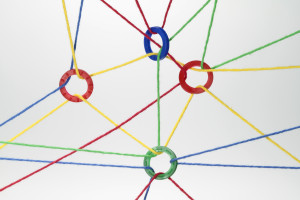My Favorite Leadership Skill: Facilitation
To help bring about an outcome by providing indirect or unobtrusive assistance and guidance.
I was thinking about my favorite skill of a leader, and I came across this definition in Webster’s dictionary.
Do you know the skill?
Maybe this story will help:
I didn’t expect to get much out of a recent meeting I attended. I was busy and distracted by my workload, so I was only somewhat engaged. But then the leader of the meeting asked us to consider times when we could be better communicators. The discussion pulled me in. I reflected on the pangs of insecurity I sometimes feel when I talk in a group setting without preparation.
He briefly presented material he had found on how to structure our ideas for maximum impact. Then he allowed time and space for each of us practice some of the ideas.
It was difficult, but I was making new mental and emotional connections, and I was connecting with everyone in the room in the process. It made me more effective and courageous as a communicator.

On the blog lately, I’ve been talking about what makes a great consultant. This meeting reminded me that they help others make important connections. Here are a few of the kinds of connections they advance:
- Mental and emotional connections. Jack Mezirow, an expert in how adults learn and transform, once said, “A defining condition of being human is that we have to understand the meaning of our experience.” To provide consultative leadership means to introduce questions, experiences and spaces that help people process their own thoughts and feelings. This is particularly important in the midst of the frenetic and full schedules that most of us maintain.
- Person-to-person connections. One of my informal consultants is a well-regarded local business leader who seems to know everyone. He was even asked to participate in a research study by a prestigious university to discover the effects on society of people who connect people to each other. His impact on me has been immeasurable. He has helped me find candidates to fill roles at our company, and he has helped me find new clients.
- Information connections. Consultants curate. They are voracious readers, listeners and watchers. My uncle Mark is one of my favorite consultants. Early in my career, I remember watching him speak to an audience about leadership and being stunned by the number of stories he told, books he sourced and quotes he referenced. He even recited poems by memory! How did he do it? He told me that he simply pays attention and documents what he learns.
Maybe you’ve figured out what the skill is now.
The leaders I’ve most benefited from are facilitators—those who help “to bring about an outcome by providing indirect or unobtrusive assistance and guidance.”
It’s not being the smartest, hardest working, strategic or visionary leader. Although those are all important, the greatest gift I’ve received from leaders is when they facilitate connections rather than direct outcomes.
And that’s what a great consultant does.
What connections can you help facilitate this week?









Comments are closed here.